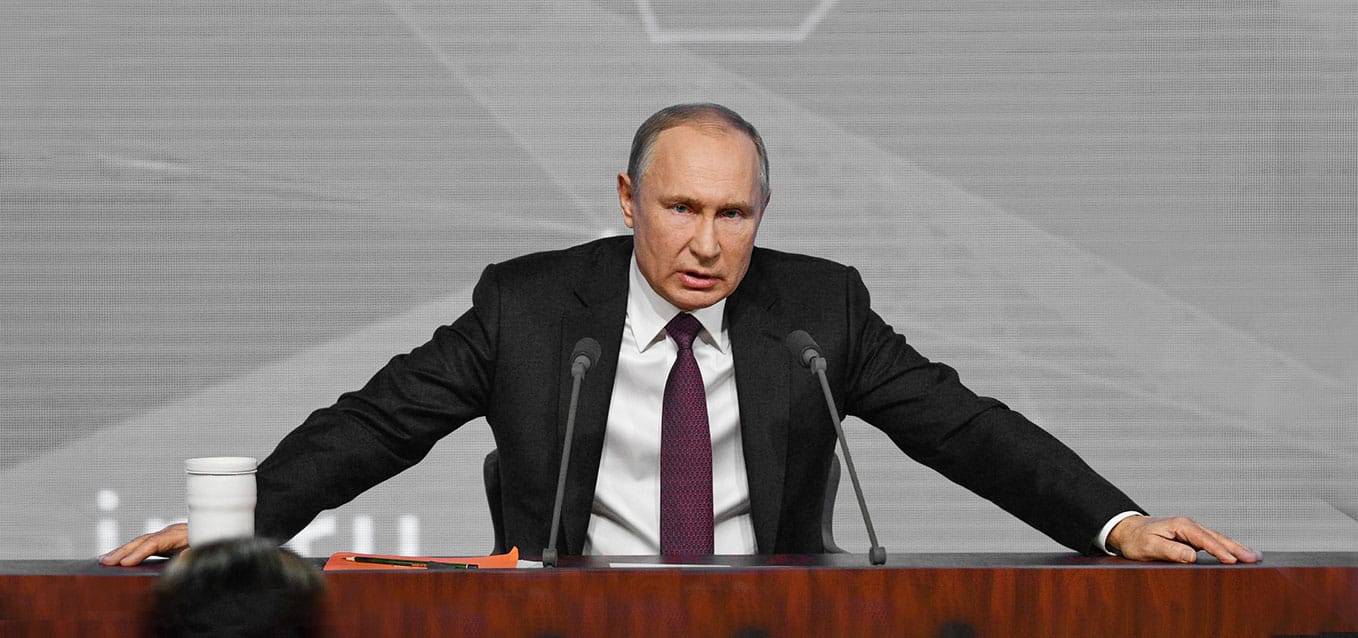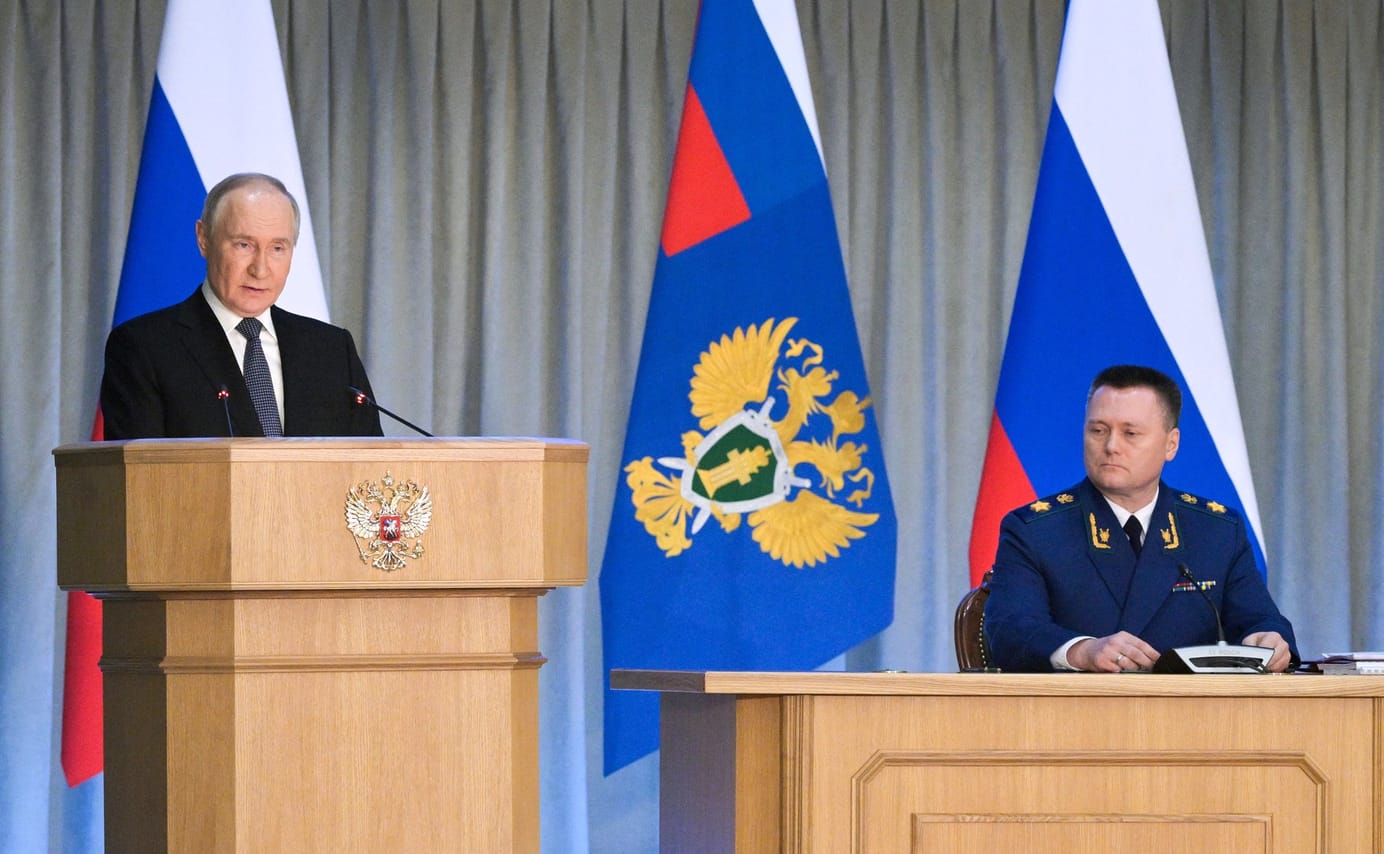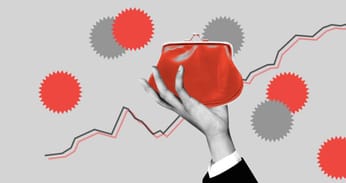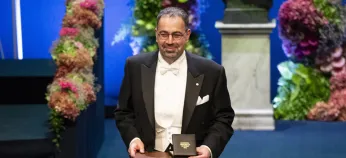
Russia’s odd ceasefire demands
Hello! Welcome to your weekly guide to the Russian economy — written by Alexander Kolyandr and Alexandra Prokopenko and brought to you by The Bell. This week we look in detail at Moscow’s strange demands to sign up to a U.S.-brokered ceasefire in the Black Sea. We also examine the arrest in Moscow of billionaire Vadim Moshkovich.
Unpicking Russia’s bizarre demand to end US agriculture sanctions
When the United States this week announced a potential ceasefire between Russia and Ukraine in the Black Sea, Moscow immediately put forward some extra demands. Moscow’s wishlist was not only very odd, it included demands that will be impossible for Washington to deliver. Some speculated Moscow’s position was the result of incompetence—others that it was a deliberate tactic to drag out negotiations, or test what exactly U.S. President Donald Trump was prepared to concede to achieve a peace deal.
Ceasefire conditions
Washington revealed Tuesday the outcome of talks with Ukraine and Russia. Apparently the two parties had agreed “to ensure safe navigation, eliminate the use of force and prevent the use of commercial vessels for military purposes” in the Black Sea. But Russia immediately issued additional demands. The Kremlin said later the same day that a truce in the Black Sea would only come into force after a series of Western restrictions, largely related to agriculture exports, were removed. It wanted sanctions lifted from:
- State-owned Rosselkhozbank and other financial institutions involved in the food trade (including fish products). Specifically, they should be reconnected to international payments service SWIFT and have the necessary corresponding accounts restored;
- Companies producing and exporting food and fertilizer, as well as insurance companies working with food and fertilizer cargoes;
- Russian-flagged ships engaged in food or fertilizer exports, and port services for these vessels;
- Supplies of agricultural equipment to Russia, including other goods used in the production of food and fertilizer.
This list raises several important questions about the Kremlin’s decision-making, its negotiating tactics, and what it is actually seeking.
Even if it wished, the U.S. could not completely fulfil these demands. If the Kremlin understands this fact, then its list is just a stalling tactic to frustrate talks while continuing the war. However, it’s not a given that those who drew up this list understand its impossibility. From a foreign policy perspective, the list makes some sense in terms of efforts to stabilize food prices, and scoring points in the eyes of the “Global South.”
Financially, there is also some sense. Getting U.S. sanctions lifted from Rosselkhozbank means it will be possible to trade in U.S. dollars through the bank even if all other countries maintain sanctions. This reduces costs, uncertainty and risks for intermediary banks.
Oddities of Russia’s demands
But that’s where the logic appears to end. Most importantly, neither food nor fertilizer exports have been sanctioned. The European Union has repeatedly tried to restrict fertilizer exports from Russia, but have been frustrated by concerns about food costs. Russia was one of the world’s leading fertilizer exporters in 2023, selling $4 billion worth to Brazil, $2.6 billion to India, $2.2 billion to the EU, $1.6 billion to the U.S., and $1.3 billion to China. And these numbers are rising: in 2024, supplies of Russian fertilizer to Europe rose 33%.
Repeated mentions of the Russian fishing industry in Moscow’s demands were also extremely odd. The U.S. banned fish imports from Russia in March 2022, but defined the country of origin by the place of final processing. Inevitably, that meant Russian fish subsequently began to enter the U.S. via factories in China. Over the same period, Russia has increased fish exports to countries all over the world, including EU nations.
It’s possible some of these bizarre demands are, in fact, about trying to get sanctions lifted on certain powerful individuals. While the fertilizer industry as a whole is sanctions-free, the owners of major Russian fertiliser companies – billionaires Andrei Melnichenko, Andrei Guriev, Vyacheslav Kantor and Dmitry Mazepin – are sanctioned (albeit the latter two are not under U.S. sanctions). Of course, like other sanctioned billionaires they sold their shares in their companies or placed them in a trust immediately after they were sanctioned – but it’s widely assumed these deals will be reversed as soon as sanctions are lifted. Russia’s biggest owner of stocks in the fishing industry is the influential Gleb Frank, the son of a former minister and son-in-law of billionaire Gennady Timchenko.
It’s true that, even unsanctioned Russian fishing and fertilizer companies face higher transaction costs – not every port will accept Russian cargoes, it’s hard to find insurers, and companies have to use intermediaries. A formal rehabilitation of their owners would remove these obstacles. But, again, it’s hard to imagine why this would be a priority for the Kremlin.
Another strange demand was to reconnect Rosselkhozbank to SWIFT. Of course, it wouldn’t be difficult for Washington to remove sanctions from Rosselkhozbank, and arrange for the necessary corresponding accounts to be opened. But the White House cannot reconnect the bank to SWIFT: the HQ of this financial system is in Belgium and a dozen central banks, including that of the EU, regulate it. What’s more, for trade and financial operations, the bank can live without SWIFT.
It is unclear why this evidently impossible demand was raised. Either those who requested it (likely from Russia’s Agriculture Ministry) don’t understand the details of international finance, or the demands reflect a widespread Russian belief that the U.S. can strongarm Europe. News agency Bloomberg quoted two sources close to the Kremlin on Friday as saying that the choice of Rosselkhozbank was all about seeing what other concessions Moscow might be able to extract: to “see if Trump would firstly engage with the idea and then whether he could bring the European Union on board.”
Why the world should care
Russia’s demands are a sign it would be willing to countenance a step-by-step lifting of sanctions (rather than stubbornly demanding their immediate removal). But they are unfulfillable, and difficult to understand. It’s either a tactic to frustrate negotiations, or a symptom of incoherence in Russia’s negotiating strategy. In any event, it confirms that there is still a long way to go before any Russia will get any major sanctions relief.
Billionaire Vadim Moshkovich arrested in Moscow
Billionaire Vadim Moshkovich, the owner of Russia's biggest agricultural holding, was detained by Russian security officials Wednesday, making him the most prominent businessman to be put behind bars since the full-scale invasion of Ukraine. The case seems to have arisen from a conflict between Moshkovich and an ex-business partner of influential State Duma speaker Vyacheslav Volodin.
- Moshkovich, a former member of the upper house of Russia’s parliament who is estimated to be worth $2.7 billion, has been accused of fraud. On Thursday, a Moscow court rejected a billion-ruble bail plea. Moshkovich himself has maintained his innocence, and reminded the court he was under EU sanctions.
- The case arose from a complaint by businessman Vladislav Burov, a former owner of company Solnechnye Produkty, which produces vegetable oil and other food goods. Solnechnye Produkty’s main creditor was state-owned Rosselkhozbank, whose board is headed by Dmitry Patrushev, deputy prime minister and son of ex-FSB chief Dmitry Patrushev. In the early 2000s, Volodin’s family held a 30% stake in the company. Volodin is a childhood friend of Burov.
- In 2007, Volodin’s family sold the stake to Burov for $200 million. Then, the following year, Burov sold Solnechnye Produkty to Rusagro. But, after the second deal, the two parties fell out: according to Burov, Rusagro refused to pay what was due; according to Rusagro, Burov’s business was in a worse financial state than they realized. Both sides went to court, demanding the other be held liable for the business’s debts. In 2023, Burov demanded a criminal case be opened against Rusagro’s owners. It’s unclear why Moshkovich has only now been arrested.
- Moshkovich made his fortune in the 1990s in trade, including agricultural products. By the early 2000s he had bought several factories that produced the goods he was trading, and he became Russia’s biggest sugar producer. Later, he added grain assets, and Rusagro became the country’s leading agriculture holding. In addition, Moshkovich has a major real estate development business. From 2006 to 2014, he was a senator in Russia’s upper house of parliament. In 2017, he gained Cypriot citizenship, but in 2024 that was revoked. He’s currently under EU sanctions.
- A source close to the situation told The Bell that Moshkovich’s protection had disappeared. In other words, the security officials who once supported the businessman no longer felt able to stand up for him in a corporate conflict. The reasons for the sudden change of heart were unclear.
Why the world should care
Although a major asset-redistribution has been underway in Russia for several years now, this is the first time since the full-scale invasion of Ukraine that a businessman in the Forbes top 100 wealthiest Russians has been arrested. Western sanctions – once a badge of honor and a form of immunity for members of Russia’s elite – clearly no longer provide the same protection. All this is further evidence that Russia’s business environment in 2025 isn’t all that different from the 1990s. In other words, might is right.
Figures of the Week
From March 18 to March 24, weekly inflation increased from 0.06% to 0.12%. Annual inflation was up to 10.11% from 10.08%.
German bank Commerzbank has set-up a €95 billion ($103 billion) reserve fund to deal with lawsuits in Russia, according to its latest report. Currently, Commerzbank is being sued by state-owned gas giant Gazprom subsidiary, Ruskhimalyans, for €94.9 billion. Ruskhimalyans has claims against five banks which underwrote its contract with German contractor Linde to construct a gas processing plant outside St. Petersburg. Linde refused to complete the work following Russia’s invasion of Ukraine and Western sanctions. Now, Ruskhimalyans is trying to recover funds from five guarantor banks, including Commerzbank. Amid all this, Commerzbank is disposing of assets in Russia: the group’s corporate portfolio was down fourfold last year to €34 million.
A total of 65% of Russian households saw their incomes increase between 2022 to 2025, according to a report from the Central Bank. A quarter of households saw their incomes increase more than 1.5 times. At the same time, there was an increase in household spending. Rapid spending growth, at 57%, was only seen among those with the fastest-growing incomes (more than 50%). And households where incomes have barely changed in two years (21%) also reported a significant increase in spending. The main driver of wage inflation, of course, is the surge in government spending on the military.
Further reading
Moscow Has Everything to Gain and Little to Lose From Black Sea Ceasefire
How Easily Could Trump Lift U.S. Sanctions on Russia?
Romania’s Radical Turn and Russia’s Influence
The bear who came to tea: Russia, Libya and the Kremlin’s playbook for fragile states





